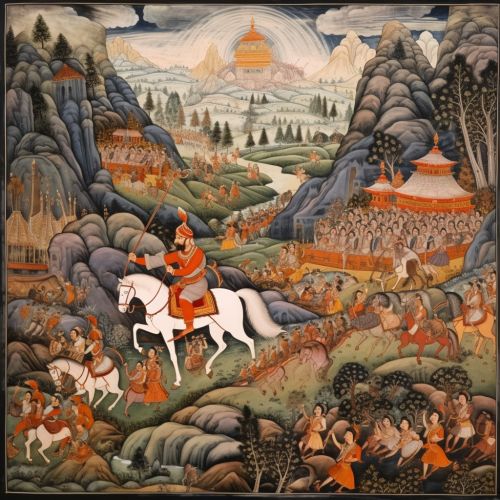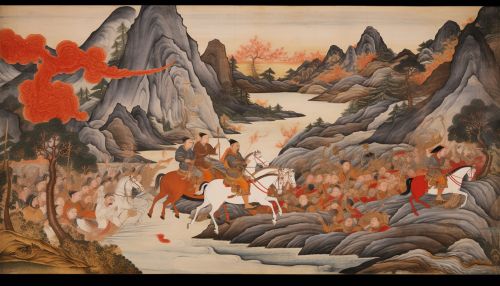Hindu Epics
Introduction
The Hindu Epics are an integral part of Hindu literature and have significantly influenced the religious, cultural, and social practices of the Indian subcontinent. These epics, primarily the Mahabharata and the Ramayana, are more than just stories; they encapsulate a vast array of philosophical and ethical teachings.
Origins
The origins of the Hindu epics are shrouded in the mists of time. They are believed to have been composed over several centuries, with the earliest layers dating back to the Vedic period (1500-500 BCE). The epics were initially transmitted orally, and it was only later that they were written down in Sanskrit, the ancient language of the Indian subcontinent.


Mahabharata
The Mahabharata, often referred to as the "fifth Veda," is one of the two major Sanskrit epics of ancient India. It is an epic narrative of the Kurukshetra War and the fates of the Kaurava and the Pandava princes. The Mahabharata also contains philosophical and devotional material, such as a discussion of the four "goals of life" or Purusharthas.
Structure and Content
The Mahabharata consists of over 100,000 shlokas or couplets, divided into 18 books, or Parvas. The central plot involves a great battle on the field of Kurukshetra between two branches of the Kuru clan: the Pandavas and the Kauravas. The epic incorporates various sub-plots and tales, including the famous Bhagavad Gita, a conversation between Prince Arjuna and his guide and charioteer, Lord Krishna.
Ramayana
The Ramayana, attributed to the sage Valmiki, narrates the life of Rama, the seventh avatar of the Hindu deity Vishnu. The epic explores themes of dharma (duty/ethics), loyalty, devotion, and ideal behavior.
Structure and Content
The Ramayana is composed of about 24,000 verses, divided into seven books. The narrative follows Rama's journey from his birth to his coronation as king, detailing his exile, the abduction of his wife Sita by the demon king Ravana, and his eventual victory over evil.
Impact and Influence
The Hindu epics have had a profound impact on Indian and Southeast Asian culture. They have been translated into various languages and have inspired countless adaptations in literature, art, dance, theatre, and cinema. The characters, stories, and moral lessons from these epics continue to shape social norms and ethical values.
